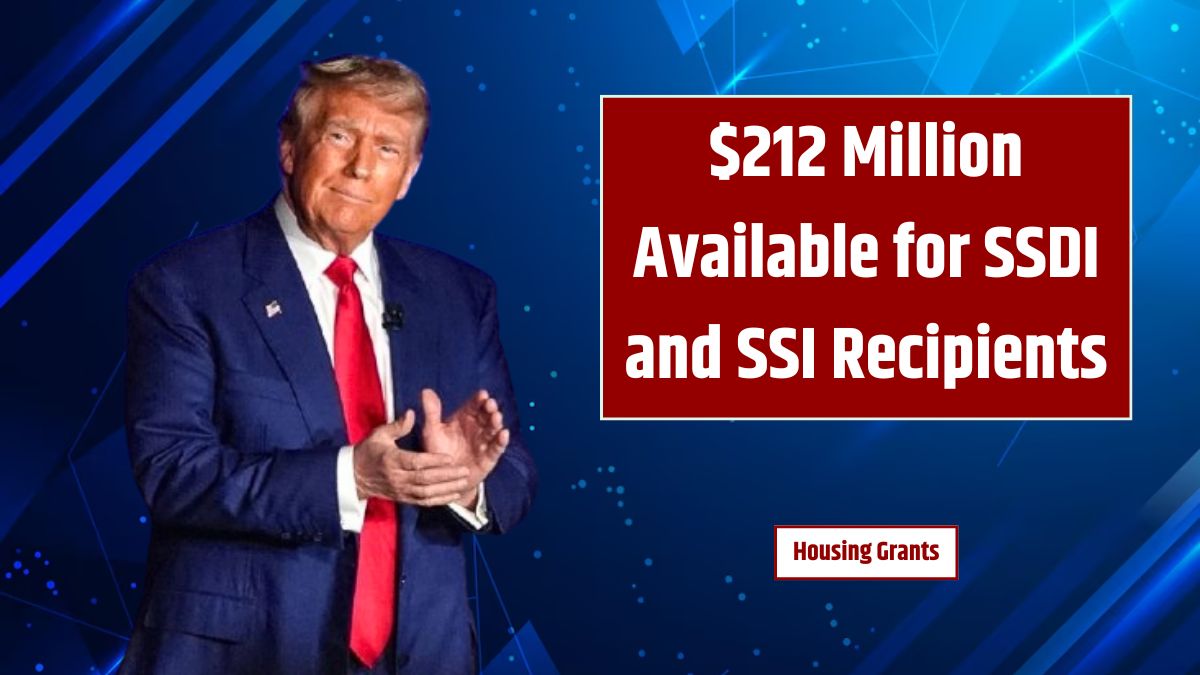For millions of Americans living with disabilities, stable housing isn’t just a comfort—it’s a necessity. But with rising rents and limited income from Social Security Disability Insurance (SSDI) and Supplemental Security Income (SSI), safe and affordable housing often feels out of reach. Thankfully, a $212 million federal housing grant program is offering relief to those who need it most. Here’s what you need to know about eligibility, benefits, and how to apply.
Overview
The U.S. government has allocated $212 million in housing grants aimed specifically at helping SSDI and SSI recipients. The goal? To provide rent support, home modifications, and increased access to affordable housing.
| Aspect | Details |
|---|---|
| Total Grant Amount | $212 million |
| Who is Eligible? | SSDI & SSI recipients |
| Types of Assistance | Rent help, housing modifications, voucher programs |
| How to Apply? | Through local PHAs and HUD offices (HUD.gov) |
| Deadline | Varies by program and location |
| Additional Support | Section 8, 811, non-profit housing programs |
These grants aim to reduce housing insecurity for people with disabilities and help them maintain independence through supportive living conditions.
Purpose
Why does this matter? Housing costs are climbing, and those on fixed disability incomes are often forced to choose between rent, food, and medical care. This grant package addresses those gaps by offering help through:
- HUD Housing Choice Vouchers (Section 8)
- Section 811 housing for persons with disabilities
- State and local housing aid
- Nonprofit housing programs
Some of these also include on-site support services like health assistance, transportation, and accessibility upgrades for those with physical disabilities.
Eligibility
To qualify, you need to meet a few basic conditions:
1. SSDI or SSI Status
- SSDI: Must have a recognized disability under Social Security guidelines
- SSI: Must meet income/resource limits set by the SSA
2. Income and Asset Limits
- HUD low-income limits apply (check regional income limits on HUD.gov)
- SSI limits: $2,000 for individuals, $3,000 for couples
- Some programs offer flexibility if medical expenses are high
3. Citizenship and Residency
- Must be a U.S. citizen or eligible non-citizen
- Must apply in the state where you live
4. Proof of Housing Need
- Must show you lack affordable, accessible housing
- May require home modifications or disability accommodations
Steps
Applying might feel intimidating, but here’s a step-by-step to make it easier:
Step 1
- Use the HUD directory to locate your local PHA
- Ask which programs are open and what documents you’ll need
Step 2
You may need:
- SSA benefit award letter (SSDI or SSI)
- ID and Social Security card
- Proof of income (bank statements, tax documents)
- Proof of residency
- Medical documentation (for disability-related modifications)
Step 3
- Apply online, in-person, or by mail through your PHA
- Some programs have long waitlists—apply early
- If denied, you can appeal
Step 4
- Some applicants may be asked to verify their needs in a formal interview
Step 5
- Once approved, you could get rent vouchers, accessibility upgrades, or placement in a subsidized housing unit
- Some programs include job training or financial planning
Additional Programs
These $212M grants are a huge help—but they’re not the only option:
Section 8 Housing Choice Vouchers
- You pay about 30% of your income on rent
- The program pays the rest
Section 811 Supportive Housing
- For disabled individuals
- Offers subsidized housing and on-site supportive services
Nonprofit Housing Aid
- Groups like Habitat for Humanity and Catholic Charities offer rental help and even homeownership opportunities
- Some offer emergency housing or rent-to-own options
LIHEAP
- Not directly housing-related, but helps with utility bills and energy efficiency improvements for eligible low-income residents
FAQs
Who qualifies for the $212M housing grant?
SSDI and SSI recipients who meet income and residency requirements.
What does the grant cover?
It helps with rent, home modifications, and affordable housing programs.
How do I apply for assistance?
Apply through your local Public Housing Agency or HUD.gov.
Is there a deadline to apply?
Deadlines vary by program and location. Apply early.
Are these grants taxable?
No, housing assistance is not considered taxable income.






